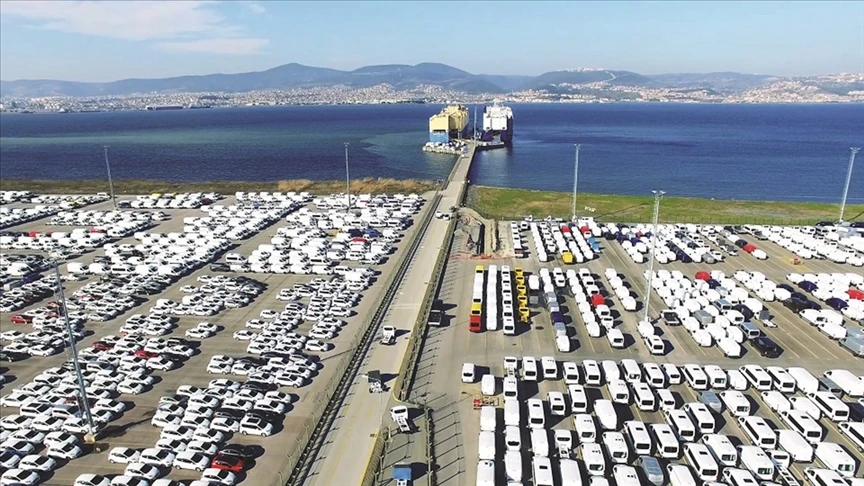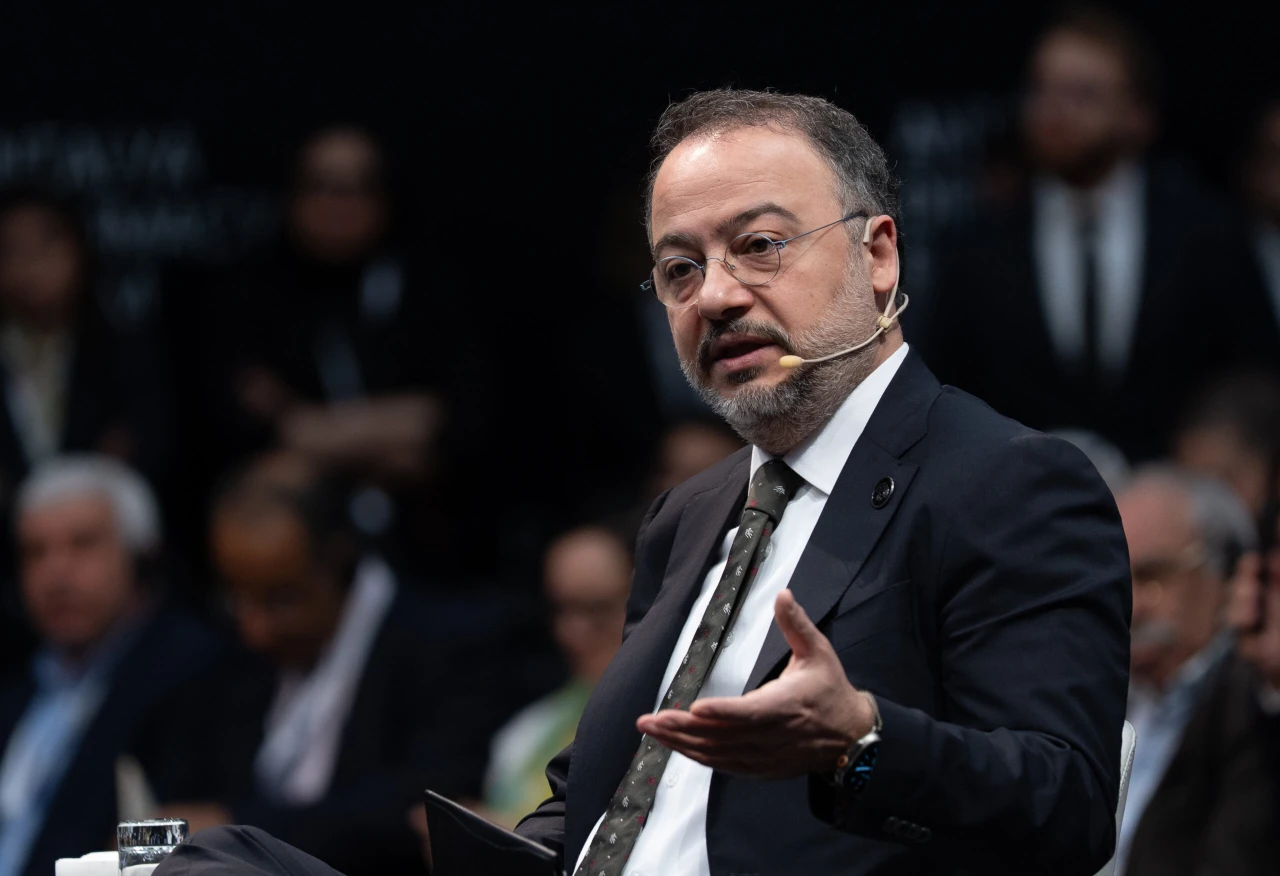US tariffs on Turkish auto exports hit 50%, Türkiye poised to leverage potential advantages
 An aerial image shows cars and sport utility vehicles unloaded from car carrier ships to the Toyota Logistics Services Inc. automotive processing terminal at the Port of Long Beach in Long Beach, California, U.S. on April 10, 2025. (AFP Photo)
An aerial image shows cars and sport utility vehicles unloaded from car carrier ships to the Toyota Logistics Services Inc. automotive processing terminal at the Port of Long Beach in Long Beach, California, U.S. on April 10, 2025. (AFP Photo)
Baran Celik, president of the Uludag Automotive Industry Exporters’ Association (OIB), said the United States’ newly announced customs tariffs present both “opportunities and challenges” for Türkiye’s automotive sector, as the Trump administration intensifies its protectionist trade agenda.
“Before the new regulations, the U.S. imposed duties ranging from 2% to 25% on imports from Türkiye. Now, that rate has increased to as high as 50%,” Celik said. “We can turn these challenges into advantages.”
U.S. President Donald Trump’s sweeping trade moves have sparked anxiety across the global automotive industry. New customs duties targeting imported vehicles and spare parts have disrupted global supply chains and revived fears of a trade war, particularly between the U.S. and China.
As these two economic powers clash, countries like Türkiye, which boasts a strong automotive production base, face a complex mix of threats and strategic openings.
Türkiye’s production capabilities take center stage
Speaking to Türkiye Today, OIB President Celik emphasized Türkiye’s strategic role in the global automotive sector. “We are vulnerable to shocks from global trade conflicts, but our flexible production capabilities and geographic position can help us adapt,” he said.
“The U.S. is one of our key alternative markets. While high tariffs may affect our export figures, it’s important to remember that these measures are not specific to Türkiye. Our competitors are dealing with the same conditions. This levels the playing field and opens space for strategic moves,” he added.
Celik also noted that the U.S. exported $144 billion in vehicles last year — $82 billion of which went to Canada and Mexico. The remaining $62 billion could be at risk if global retaliation follows.
“Countries may respond with their own tariffs, and that could seriously disrupt U.S. automotive exports and create new market opportunities,” he said.

Misconceptions about Türkiye’s tariff bracket
In 2024, Türkiye’s total automotive exports reached $35.4 billion, with $12–13 billion from the supply industry, $9–10 billion from passenger cars, and $12–13 billion from commercial vehicles. The 2025 export target remains $39 billion.
Despite the U.S. accounting for only $1 billion of Türkiye’s annual automotive exports over the past four years, Celik stressed its importance. “The U.S. ranks among our top 10 automotive export markets. In 2024 alone, our exports of parts and components to the U.S. surpassed $1 billion,” he said.
Celik corrected the assumption that Türkiye is in a lower tariff category. “As of April 3, the U.S. imposed an additional 25% tariff on both vehicles and parts. Previously, passenger cars from Türkiye faced a 2.5% duty, while commercial vehicles were taxed between 2% and 25%,” he said.
“With the new regulations, an additional 25% has been tacked onto existing rates, pushing tariffs on some commercial vehicles to 50%. This presents a significant cost burden and puts our original equipment manufacturers in a tough spot,” he added.

Sector focused on May 3, but why?
The sector is now focused on May 3, when new duties on imported parts and components are expected to be finalized. “Until now, U.S. tariffs on Turkish parts and components were capped at 2.5% — and often zero. The new 25% hike will significantly raise costs,” Celik said.
He acknowledged the uncertainty surrounding the full impact of the tariffs, noting that the U.S. represents just 3% to 3.5% of Türkiye’s automotive exports. “We are not revising our 2025 target at this stage,” he said.
Celik concluded by underscoring Türkiye’s balanced foreign policy and diversified trade strategy. “Our strong relations with Europe, Asia, and the Americas help us maintain our global importance. We remain committed to our export goals,” he said.



